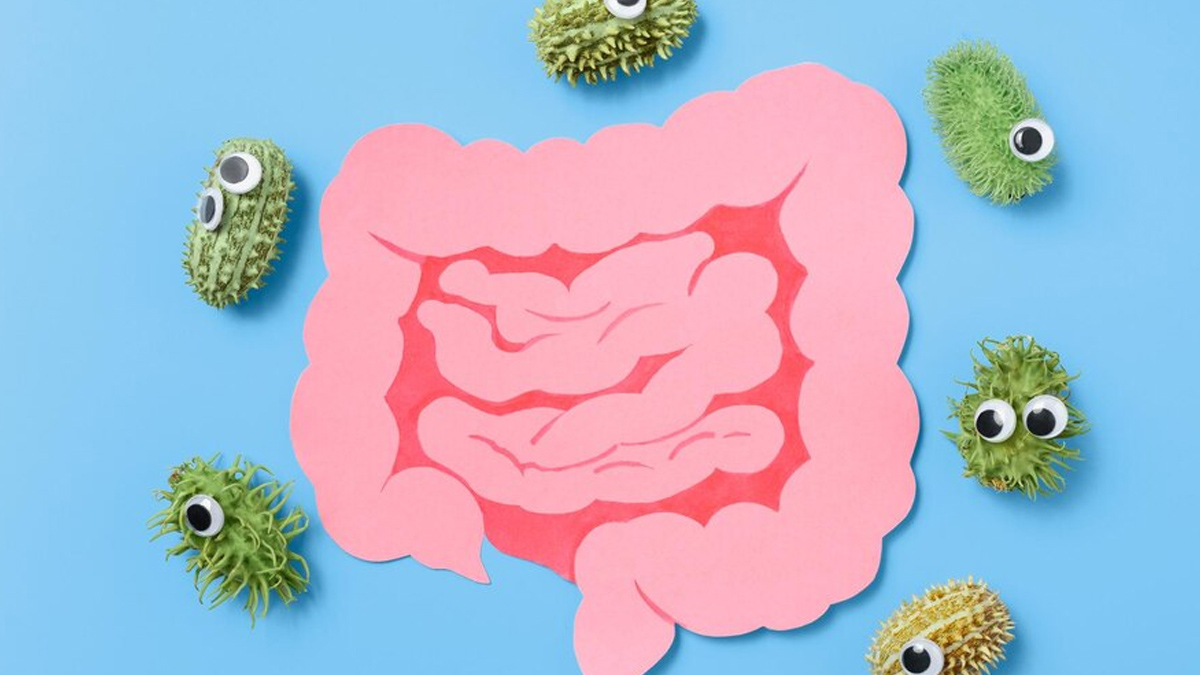
The monsoon season brings a welcome respite from the scorching summer heat. But with the pitter-patter of rain often comes a downpour of digestive woes. The change in weather, coupled with increased humidity and potential for contaminated food can wreak havoc on your gut health. This is where probiotics come in – tiny warriors offering a natural defence for a happy gut during the monsoon.
Table of Content:-
How Does The Gut Microbiome Work?
Your gut is home to a complex ecosystem of trillions of microorganisms, bacteria being the most prominent. According to a study published in the International Journal of Molecular Sciences, these bacteria can be broadly categorised into ‘good’ and ‘bad’ bacteria. The ideal state is a healthy balance between these two groups. ‘Good’ bacteria aid in digestion, nutrient absorption, and even immune function. ‘Bad’ bacteria, when overgrown, can disrupt this balance, leading to digestive issues like bloating, gas, diarrhoea, and constipation.
The monsoon season disrupts this delicate gut balance in a few ways:
- Dietary Changes: We often crave comfort foods like fried snacks during the monsoons. These foods can disrupt the healthy bacteria in your gut.
- Contaminated Water: Increased waterborne illnesses due to contaminated water sources can introduce harmful bacteria into your gut.
- Reduced Immunity: The dampness and chill of the monsoon season can make you more susceptible to infections, further impacting your gut health.

Benefits Of Probiotics For The Gut
Probiotics are live microorganisms similar to the beneficial bacteria naturally present in your gut. Consuming probiotics can help restore the balance between good and bad bacteria, said the Food Safety and Standards Authority of India, leading to several potential benefits during the monsoon season:
- Improved Digestion: Probiotics can aid in breaking down food effectively, reducing bloating, gas, and discomfort.
- Enhanced Nutrient Absorption: A healthy gut microbiome ensures better absorption of essential nutrients from your diet.
- Strengthened Immunity: Probiotics can contribute to a stronger immune system, better equipping you to fight off monsoon-related infections.
- Reduced Risk of Diarrhoea: Probiotics can help prevent diarrhoea caused by certain bacteria or viruses, a common concern during the monsoon.
Also Read: 5 Signs Having Probiotics Is Actually Working For You

How To Include Probiotics In Your Diet?
There are two main ways to incorporate probiotics into your diet:
- Probiotic-Rich Foods: Naturally fermented foods like yoghurt, kefir, kimchi, sauerkraut, and tempeh are excellent sources of probiotics.
- Probiotic Supplements: Probiotic supplements can provide a concentrated dose of beneficial bacteria. However, consulting a doctor before taking any supplements is recommended, especially if you have underlying health conditions.
Here are some additional tips to maximise the benefits of probiotics during the monsoon:
- Maintain a Healthy Diet: Focus on fruits, vegetables, and whole grains to nourish your gut bacteria.
- Stay Hydrated: Proper hydration is crucial for gut health, especially during the monsoon.
- Manage Stress: Chronic stress can negatively impact your gut health. Practice relaxation techniques like yoga or meditation.
Also Read: Probiotics Can Help You Fight Viral Infections, Expert Lists Sources
By incorporating probiotics into your routine, you can give your gut the natural support it needs to thrive during the monsoon season. Remember, a healthy gut is essential for overall well-being. So, embrace the pitter-patter of rain, enjoy delicious monsoon treats, and support your gut health with the power of probiotics for a happy and healthy season!
Also watch this video
How we keep this article up to date:
We work with experts and keep a close eye on the latest in health and wellness. Whenever there is a new research or helpful information, we update our articles with accurate and useful advice.
Current Version